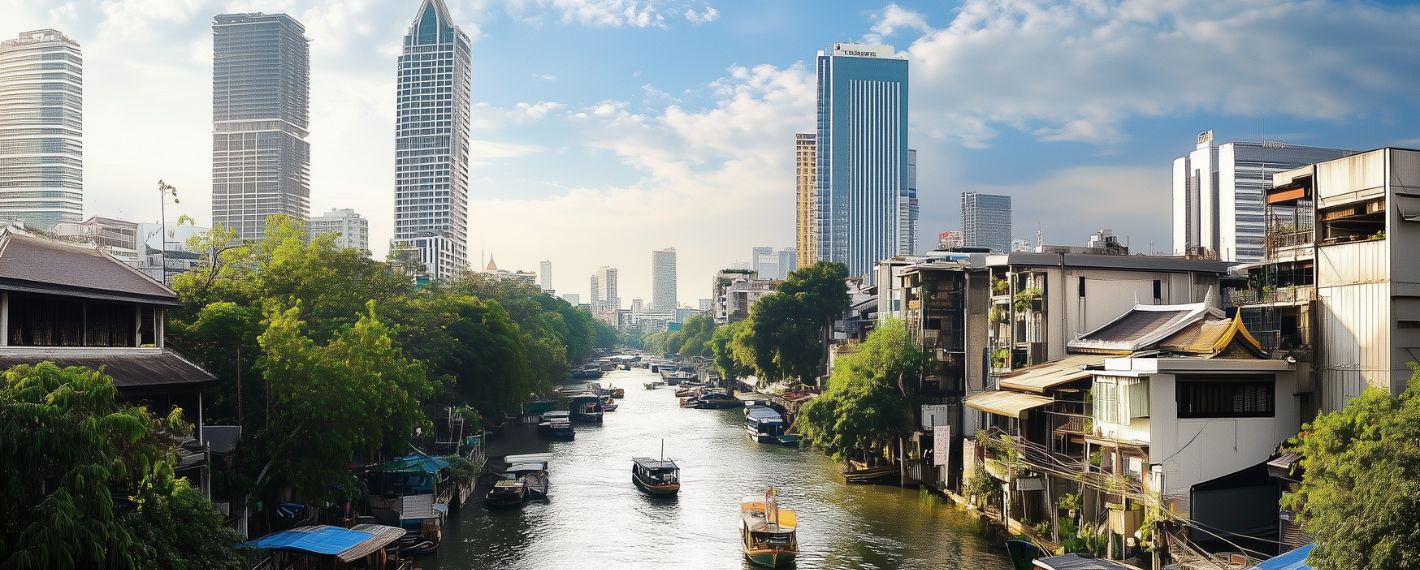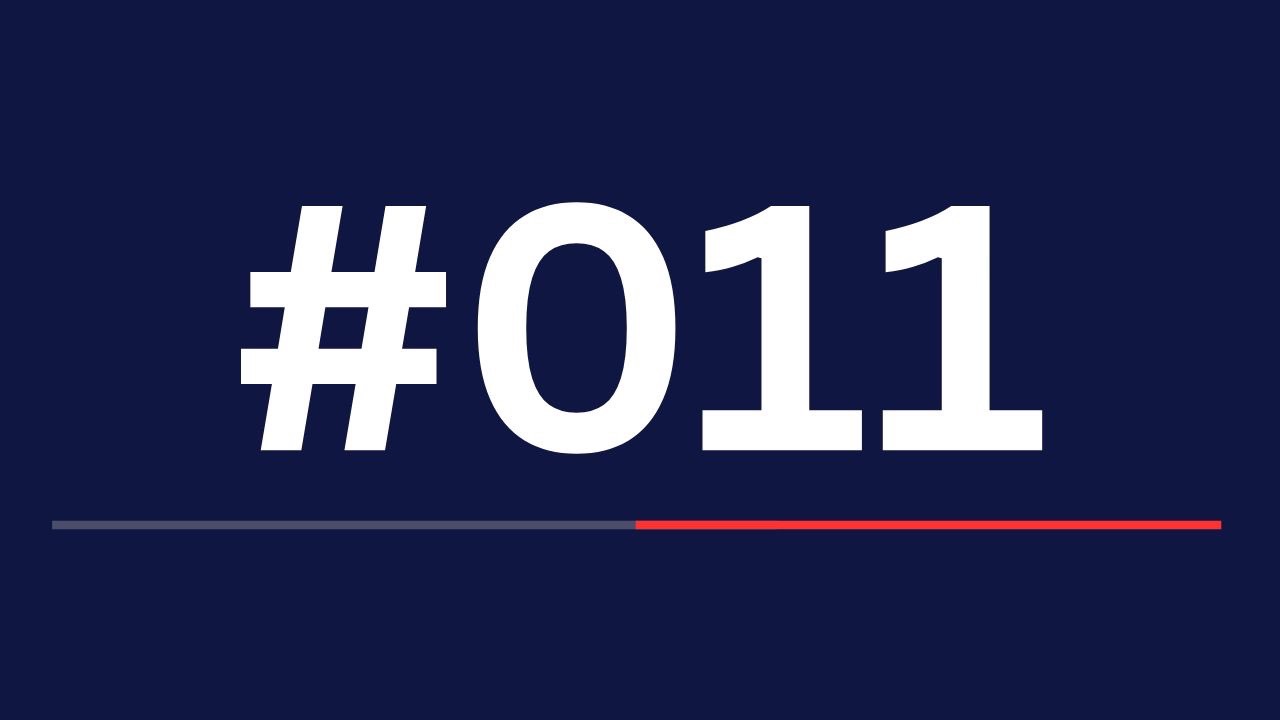6 Different Ways Expats Move Money to Thailand

7 Minute Read
You've figured out your visa. Maybe you've even found that perfect condo with the view that makes your friends back home jealous. You're starting to imagine what Sunday mornings in Thailand might feel like.
But there's this one practical piece that almost everyone underestimates until they're knee-deep in it: how do you actually get your money to Thailand?
And more importantly, how do you do it without losing a small fortune in fees and painful exchange rates along the way?
Whether you're a retiree moving pension payments, a remote worker getting paid from abroad, or someone liquidating assets to fund your new life, understanding your money transfer options isn't just helpful, it's essential.
So, let me walk you through the real-world methods expats actually use, when each makes sense, and how to avoid the most expensive mistakes.
1) SWIFT Transfers: Old Reliable
This is how international money movement has worked for a very long time. Your home bank wires money through a network of correspondent banks until it lands in your Thai bank account. It's straightforward and reliable, but can sometimes be pricey and is oftentimes quite slow.
How it works: You initiate a transfer through your home bank's app or branch, provide your Thai bank details, and generally wait 1-4 business days for the funds to arrive in your Thai bank account.
The cost reality: Your home bank often charges a flat-rate transfer fee upfront. Intermediary banks take their cut (often undisclosed). Your Thai bank may charge a receiving fee. Plus, you'll get an exchange rate that's usually padded in the bank's favor. That said, there are cases where some banks may waive the sending or receiving fee. I’ve heard these cases before and it’s generally dependant on the relationship that the individual has with the bank itself. Prior to moving to Thailand, it never hurts to have a conversation with a representative from your Bank to better understand their fees, and opportunities to reduce these fees as part of regular SWIFT transfers from your Home Country Bank Account to your current (or future) Thai Bank Account.
When SWIFT makes sense: Condo purchases requiring a Foreign Exchange Transaction form, or any situation where you need a crystal clear paper trail proving an international fund transfer from abroad into Thailand.
For example, I have a buddy that just purchased an older condo unit in Bangkok and will be renovating it to suit his needs. As part of that purchase process, he opted to use SWIFT to transfer the funds because he was able to easily get the required FET form as part of that which is something that’s generally needed to qualify for foreign freehold condo ownership under Thailand's Condominium Act.
2) ATM Withdrawals: Quick but Can Add Up
Pop your foreign debit card into any Thai ATM and get baht immediately. It’s convenient, until you do the math.
Thai ATMs charge a 220 baht fee per withdrawal for foreign cards, no matter how much you take out. And if you let the ATM itself handle the conversion... the exchange rate is no good. Always decline this option.
Now, even if you let your home bank handle the currency conversion here, the rate is usually still not ideal.
At the end of the day, this isn't usually a very economical option in the long run.
That said, some banks do offer relief on this. Charles Schwab in the U.S. for example, has account options that reimburse all ATM fees worldwide at the end of each month and doesn’t charge foreign transaction fees. That means the 220 baht? You’ll get it back in this case.
Withdrawal limits: Usually 20,000–30,000 baht per transaction, depending on the ATM. Your home bank may also have its own daily cap but this can usually be adjusted within your banking app.
Best for: New arrivals who need cash quickly, emergencies, or anyone that banks with a provider like Charles Schwab that refunds international ATM fees.
3) Money Management Platforms: A Great Option
This is where things get interesting. Platforms like Wise, Revolut, Airwallex, Remitly, and Xoom have created alternatives to the traditional bank wire system. Instead of relying on opaque fees and inflated exchange rates, they've introduced something refreshingly straightforward: transparency.
Let's take Wise, for example… arguably the most well-known platform in this space and the one I’ve used myself for the past 4.5 years living in Thailand.
How it works: When you send, convert, and receive money using Wise, you get the real, mid-market exchange rate, which is what Google shows if you search "USD to THB" for example. Different organizations use different data sets, so rates vary slightly, but Wise doesn't add a hidden markup to this mid-market rate. Instead, they charge a clear, upfront fee based on the amount you're sending.
The real-world difference: When I first moved to Thailand, I was using my Canadian RBC Bank Account to transfer in about CAD $2,500 per month into my Thai Bank Account. As part of that, I was losing about CAD $70 per transfer when factoring in wire fees and currency exchange losses. With Wise, that same transfer costs about CAD $25 all in. Over a year, that's saving me roughly CAD $500 which is enough for a nice long weekend away in Krabi.
Why this became my go-to solution: They let you hold and convert between dozens of currencies, so if you're keeping funds in USD or EUR and watching the baht fluctuate, you can convert when timing makes sense. It's like having your own personal foreign exchange desk that actually works in your favor.
You can use Wise to transfer funds directly to most of the major Thai Banks including:
- Bangkok Bank Public Company
- Kasikorn Bank
- Krung Thai Bank
- Siam Commercial Bank (this is who I bank with in Thailand)
- CIMB Thai Bank
- Bank Of Ayudhya (Krungsri bank)
- Kiatnakin Phatra Bank
So, as long as you, or whoever the receiver is (like your Thai landlord) has a Bank Account with one of these institutions, you can very easily send Baht through.
On top of that, if you choose to hold Thai Baht in your Wise account, you can use their debit card to withdraw cash at Thai ATMs without currency conversion fees. This is because you're pulling from a Thai Baht balance, not converting on the spot. You'll still pay the standard 220 baht ATM fee, but you're not layering on conversion costs or terrible rates.
Important Note: Now, Wise has sponsored some of my YouTube videos, but they're the only external company I've ever worked with. And that's because of the math I mentioned above. The hundreds of dollars in annual savings I enjoy. Over the years, they've saved me thousands in fees which is why I reached out to work with them in the first place.
Perfect for: Monthly living expenses, paying rent, remote worker payment/salary collection, and day-to-day spending through the Wise debit card.
All in all, I remain an active customer and wanted to highlight how their platform works in case you were interested.
So, with that said... if you'd like to sign up, then you can do so here and have your choice between a fee-free transfer up to £500 or a free Wise Debit Card.
4) Western Union: Still Relevant For Specific Situations
Now, don't write off the old-school remittance services just yet. Western Union has a massive network and can be incredibly useful in specific scenarios.
When it makes sense: You don't have a Thai bank account yet but need larger amounts of cash when other methods aren't available, or if the recipient prefers cash pickup.
The exchange rates include a markup, but the convenience factor can be worth it for certain situations and they are very easy to use.
5) Cash: Old School But Sometimes Optimal
Yes, some people still fly with envelopes of cash. And it can be a smart move. On the Thai-side, you can bring up to the equivalent of USD $15,000 into Thailand without declaring it.
Now, as far as exchanging the foreign funds into Baht go, Thai exchange booths like SuperRich often offer the best rates in the country. In many cases, even better than Thai banks.
Makes sense for: First-month setup money, security deposits, or if you're philosophically opposed to digital banking.
Obvious downsides: Security risks, declaration limits, and it's probably not the most practical option for ongoing needs.
6) Cryptocurrency
Still niche, but growing among crypto-native expats. You transfer crypto (BTC, ETH, USDT, etc.) to a Thai exchange like Bitkub, convert to baht, and withdraw to your Thai bank account.
Advantages: Speed (minutes instead of days) and low fees, especially for larger amounts.
Requirements: You need existing crypto holdings, a Thai bank account, and comfort with exchange platforms.
It's not for everyone, but it's another tool in the toolkit.
Choosing Your Strategy
Most expats end up using a combination of methods because different situations call for different solutions.
Here's how I see a few different use-cases:
For retirees: Wise (or the Wise equivalent) for monthly transfers, SWIFT for one-time movements requiring specific documentation such as the FET Form for a condo purchase.
For remote workers or digital nomads: Wise (or the Wise equivalent) for receiving payments and daily spending through their debit card.
For travelers and tourists: Foreign ATM card, Wise (or the Wise equivalent) account for flexibility.
For property buyers: SWIFT when you need official documentation such as an FET form
8) Final Thoughts:
The goal isn't to find the "perfect" solution. It's to build a toolkit that covers all your scenarios efficiently.
Your money transfer strategy should evolve with your life here. What works in month one might not work in year two. Stay flexible, track your costs, and adjust as needed.
Ultimately, the best money transfer method is the one that lets you stop thinking about money transfers and start focusing on actually enjoying life in Thailand.
When You're Ready, Here's How We Can help:
1. Get your Visa sorted without the stress: Your entire Thai visa application handled from start to finish. No paperwork headaches, no Embassy or Immigration office stress. Even if you're still in your home country, we help start the process, get you approved efficiently, and enter Thailand with complete clarity so you can focus on actually enjoying life here.
2. Learn Thai that actually sticks: Join Teacher Fah's Thai Language Challenge. A 100-day structured program that's already helped over 900 expats build real speaking skills they can use daily. If you'd like to see my progress after her 100-day challenge so you know what you can achieve, just watch this video here. Enrollment is limited to 50 students per cohort to ensure personal attention. If doors aren't open right now, you can join the waitlist for first access.





